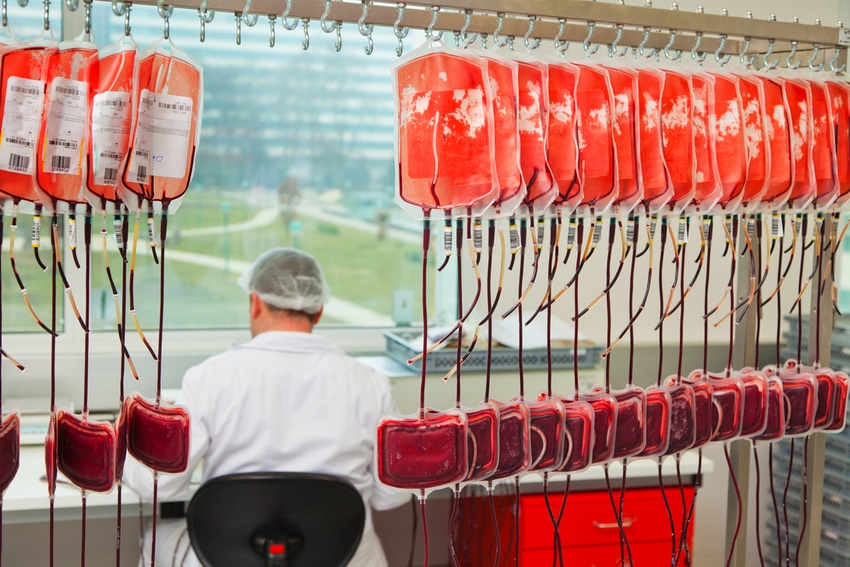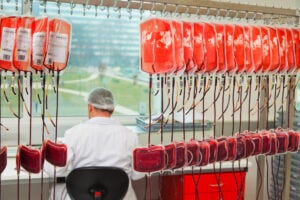Content Spotlight
Podcast: MilliporeSigma says education vital to creating unbreakable chain for sustainability
MilliporeSigma discusses the importance of people, education, and the benefits of embracing discomfort to bolster sustainability efforts.

A standardized approach to collecting, processing, and storing cell therapy starting materials can reduce variations in manufacturing outcomes and simplify supply chain management, says Cryoport’s CEO.
Temperature-controlled supply chain services firm Cryoport has partnered with Takeda’s plasma donation and collection business BioLife Plasma Services to offer standardized cell therapy collection, processing, and storage services for cell therapy products across the US and Europe.
The collaboration, of which no financial details have been divulged, aims to establish an integrated GMP-compliant supply chain platform for cell therapy products intended to shorten processing and logistics time, reduce workload at clinical facilities, and diminish risks and redundancies to create a scalable, reliable and more efficient system for donors, patients, manufacturers and providers.

ginasanders
We spoke with Mark Sawicki, president and CEO of Cryoport Systems and chief scientific officer of Cryoport, to find out more:
Mark Sawicki (MS): This partnership is focused on bringing together BioLife Plasma Services’ proficiency in apheresis collection and its donation center infrastructure with Cryoport’s life sciences’ world-class capabilities and expertise in temperature-controlled supply chain solutions for the biopharmaceutical industry. The two companies aim to establish a standardized, integrated apheresis collection, processing and distribution solution for cellular therapies. The new platform will leverage the cryo-processing expertise of Cell Matters, which Cryoport acquired in late July 2022.
MS: Availability of cellular therapy assets as starting materials for cellular therapies is limited by inflexibility in donation scheduling, a lack of standardization in collection and processing and challenges inherent towards ensuring compliance with the Good Manufacturing Process (GMP) regulations. By working together, this new relationship, which will facilitate strict compliance with applicable GMP regulations, aims to shorten processing and logistics time and standardize collections, contracting and equipment. In turn, this will enable researchers and developers to accelerate cellular therapy programs. Increased access to apheresis, with efficient, scalable and reliable end-to-end processes will benefit not only donors and patients, but manufacturers and the providers of these life-saving therapies, as well.
MS: Greater standardization in the development and production of cellular therapies can provide important reassurance to cell and gene therapy developers, patients and healthcare providers that, regardless of location, the starting material of these therapies will consistently be of high quality. It will also help the industry progress as quickly and safely as possible towards contributing to life-changing therapies for patients. Standardization can also create consistency and efficiency across pre-clinical, clinical and commercial programs, which could help reduce variations in manufacturing outcomes and simplify management of cellular therapy supply chains.
MS: Other parties have tried to standardize aspects of the process but were reliant on 3rd party assets and competencies. Since Biolife/Cryoport own and are responsible for all assets, it provides significant leveragability to effectively standardize the entire process.
MS: Cryoport currently supports more than 625 clinical programs and nine commercial products in cell and gene therapy. Through practical experience, we have a unique viewpoint on the pain points impacting scalability and standardization for long term viability of cell and gene therapy products. Apheresis collection, processing and distribution is one of the key pain points the industry is challenged with today.
MS: In the United States, the Food and Drug Administration’s Center for Biologics Evaluation and Research is responsible for regulation of cellular and tissue-based therapies. The Foundation for the Accreditation of Cellular Therapy (FACT) and Association for the Advancement of Blood & Biotherapies (AABB) both provide standards and voluntary accreditation programs for the collection and manufacturing of cellular therapies. Based on early engagement with thought leaders in the industry, we strongly believe that such standardization will be very favorably received by regulators.
You May Also Like